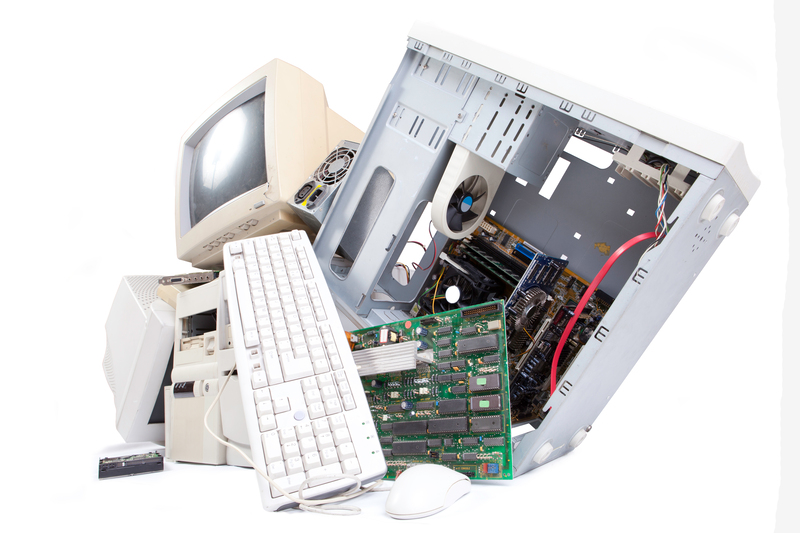Bulk Waste on a Budget: How to Spend Less on Big Disposals
Managing large-scale waste can be a daunting--and costly--task. Whether you're renovating your home, undertaking a serious declutter, or overseeing a construction project, disposing of bulk waste efficiently without overspending is a top concern for many. This comprehensive guide reveals insider strategies and essential tips for handling big waste disposal while keeping your budget in check. If you want to learn how to save money on large waste removal, read on!
Understanding Bulk Waste: What Qualifies?
Before exploring how to tackle bulk trash disposal affordably, it's important to know what counts as "bulk waste." In most cases, bulk waste refers to items too large or too numerous to fit in standard garbage bins or scheduled curbside pickups. Common examples include:
- Old furniture (couches, mattresses, cabinets)
- Large appliances (fridges, stoves, washing machines)
- Construction and renovation debris (drywall, wood, tiling)
- Yard waste in significant quantities (tree branches, soil, large bags of leaves)
- Electronics and bulky gadgets (televisions, computers)
Bulk waste typically accumulates after cleanouts, moves, renovations, or landscaping projects. Unfortunately, standard municipal waste removal services often do not cover these types of items for free.

Why Is Bulk Waste Removal So Expensive?
Large-scale waste disposal can quickly eat up your project budget. Price factors include:
- Labor required to move heavy or awkward items
- Transportation and fuel costs
- Disposal fees at landfills or recycling facilities
- Special handling for items like electronics or hazardous waste
- Rental costs for dumpsters or large bins
Despite these challenges, affordable bulk rubbish removal is possible. With some planning, smart decision-making, and resourcefulness, you can dispose of big waste items for less.
Top 10 Ways to Save on Bulk Waste Disposal
1. Minimize Waste with Upfront Planning
The best way to reduce bulk trash expenses is to create less waste in the first place. Before starting your project:
- Take detailed inventories of what you need to dispose
- Sort items into categories: reusable, donatable, sellable, recyclable, and actual waste
- Measure bulky items to optimize logistics
- Estimate total volume--this will help you choose the right disposal solution and avoid overpaying for oversized dumpsters or pickups
2. Donate or Sell Usable Items
One person's trash is another's treasure! Donating or selling large items not only reduces what you need to throw away, but can also bring in extra cash or help someone in need. Popular options include:
- Charity shops (for furniture, appliances, household goods in good shape)
- Online classifieds (Craigslist, Facebook Marketplace, OfferUp)
- Community give-away groups or Freecycle
- Local nonprofit organizations (many offer free pickup for bulk donations!)
By keeping these items out of the waste stream, you'll reduce both your garbage volume and your disposal fees.
3. Recycle Wherever Possible
Not everything in your big clean-out goes straight to the dump. Many materials--like metals, electronics, cardboard, and certain plastics--are recyclable.
- Contact your local recycling center to ask about bulk drop-offs
- Take electronics to dedicated e-waste collection points (often free or low cost)
- Many cities offer "bulk recycling days"--watch for these events to get rid of large recyclable items for free!
Recycling reduces landfill fees (which are usually more expensive than recycling centers) and is the greener option.
4. Use Municipal Free or Discounted Bulk Pickup
Many cities and towns provide residents with annual or occasional free bulk waste pickups. Eligibility, accepted items, and schedules vary, so:
- Check your local municipality's website for bulk pickup guidelines
- Register in advance--slots fill quickly!
- Sort your items by category to avoid confusion on collection day
- If it's a pay-as-you-throw service, combine with neighbors or plan several months ahead to minimize frequency
Pro Tip: If you missed the main pickup or need a second round, ask if your town offers "on-demand" or "call-in" bulk collection at a reduced rate.
5. Organize a Group Bulk Waste Cleanup
Bulk waste removal services often have minimum charges and price by volume. Pool resources with neighbors or nearby businesses to split costs of disposal, dumpster rentals, or truck hires.
- Coordinate neighborhood or building-wide clean-up days
- Get quotes for group pickups and negotiate discounts with vendors
- Share transportation: load all waste into a single truck to reduce fuel costs
6. Choose the Right Dumpster Size
Renting a dumpster is a great way to handle major bulk trash projects, but picking the right size saves you money:
- Don't overestimate: Choose a bin only as large as you need to avoid paying for empty space
- Ask for "swap outs" if you fill one quickly--cheaper than renting two bins at once
- Arrange for driveway or curbside placement to avoid permit costs
Compare at least three dumpster rental companies--rates and rules vary widely!
7. Try Junk Removal Companies--But Get Multiple Quotes
Professional junk removal services are fast and convenient, especially for heavy lifting, but prices can be steep. To spend less:
- Contact at least three local companies for clear, written quotes
- Ask about special offers, coupons, "off-peak" discounts, or first-time customer deals
- Sort and group your items before pickup--the more organized, the faster (and often cheaper) the job
- Inquire about "curbside only" pickup, which is cheaper than in-home hauling
8. Handle Hazardous or E-Waste Separately
Electronics, old paint, batteries, and chemicals require special handling--disposing of them improperly can be expensive (and illegal).
- Look for free city hazardous waste or electronics recycling events
- Electronics retailers often accept old electronics for free or low cost
- Some cities offer curbside hazardous waste pickup by request--utilize these services to avoid fines
9. DIY Bulk Waste Drop-Off
If you have access to a truck or trailer and don't mind doing the heavy lifting, direct drop-off to the dump or landfill is often the cheapest bulk disposal method.
- Weigh fees: landfills typically charge by weight and type
- Break down items as much as possible to reduce volume and save on fees
- Check for local transfer stations that may accept certain items for free
Several small trips can sometimes cost less than a single, oversized load.
10. Stay Informed About Local Regulations
Rules and regulations for bulk waste disposal differ by region. Avoid fines (and headaches) by:
- Checking what is considered bulk waste in your area
- Confirming accepted hours, procedures, and fees for disposal sites
- Following safety and packaging instructions for hazardous or oversized items
Cost Comparison: Bulk Waste Disposal Methods
| Method | Average Cost | Best For | Potential Savings Tips |
|---|---|---|---|
| Municipal Pickup | Free to $50/collection | Small volumes, household items | Book early, combine loads with neighbors |
| Dumpster Rental | $200-$800/project | Renovations, construction, large cleanouts | Choose smallest size, minimize rental duration |
| Junk Removal Services | $150-$600/visit | Heavy/awkward items, limited time | Request multiple quotes, organize items curbside |
| DIY Drop-Off | $20-$100/trip | Miscellaneous items, when you have a vehicle | Break down items, check transfer station fees |
Questions to Ask Before Spending on Big Waste Removal
- Can this item be donated or recycled instead?
- Is there a free municipal bulk pickup available?
- What is the total volume and weight of waste?
- Could I combine my disposal needs with others for a discount?
- Will hiring a junk removal company save time or money compared to DIY?
- What are the landfill or recycling center drop-off fees?
- Do special items require separate handling?

Extra Tips for Budget-Conscious Bulk Waste Management
- Take apart large items (beds, desks, cabinets) to maximize space in your dumpster or vehicle
- Ask local businesses or contractors about "open load" days after major renovations--they sometimes share or offer bulk discounts
- Avoid last-minute bookings: Scheduling in advance can net you better rates
- Reuse large containers (boxes, bins) to haul smaller items more efficiently
- Always confirm what's not accepted--disposed restrictions can mean surprise fees
- Watch for seasonal deals (spring and fall cleaning events, discount days at dumps and landfills)
Conclusion: Save Big on Big Waste
Bulk waste doesn't have to break the bank. With thoughtful planning, resourceful recycling, and choosing the right disposal method, you can manage even the largest garbage piles for less.
Remember: Inventory your items, tap into your municipality's free or discounted services, and always compare costs before committing. Don't forget the potential for donating, upcycling, or organizing group removals--each can slash your disposal bill.
By following these practical tips, you'll enjoy a clean space and a clean conscience, all while keeping your bulk waste disposal budget-friendly.
Ready to tackle your next big cleanout? Use this guide on affordable bulk trash solutions to make your project smoother and cheaper than ever before!